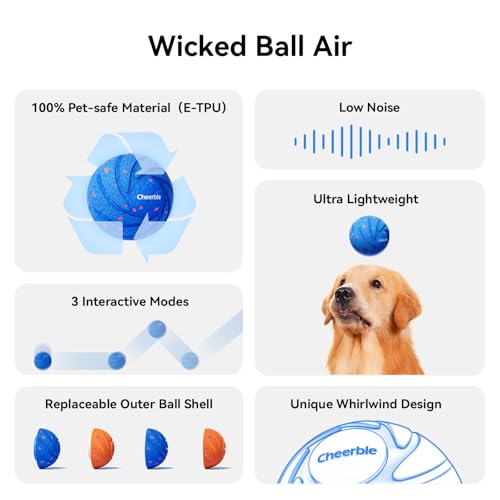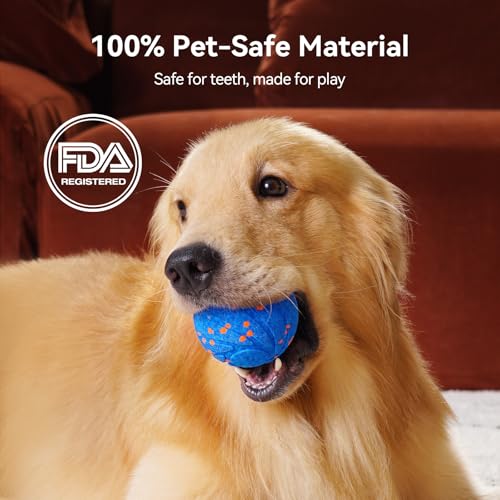








As a dedicated dog owner, I understand the importance of maintaining a healthy weight for our beloved pets. Watching your furry friend struggle with weight issues can be heart-wrenching, especially knowing the myriad of health problems that come with obesity. It’s crucial to find the right food that not only satisfies their hunger but also supports their weight loss journey effectively.
Over the years, I’ve researched extensively and tried various dog foods to help my canine companion shed those extra pounds. I’ve discovered that not all dog foods are created equal. The best dog food for weight loss is one that combines the right balance of nutrients, low-calorie content, and high-quality ingredients. This ensures your dog stays full and energetic while gradually losing weight in a healthy manner.
In this article, I’ll share my findings on the top dog foods specifically formulated to aid weight loss. These options have been chosen based on their nutritional value, ingredient quality, and proven effectiveness in helping dogs achieve and maintain a healthier weight. Whether you’re just starting your dog’s weight loss journey or looking for a more effective food option, this guide aims to provide you with the information needed to make an informed decision.
Why Your Dog Might Need a Weight Loss Diet
As a devoted dog owner, I understand the importance of keeping our furry friends healthy and happy. One critical aspect of their well-being is maintaining a healthy weight. Over time, I noticed my dog struggling with activities that were once easy, such as climbing stairs or playing fetch. It became evident that the extra pounds were taking a toll on his overall health and energy levels.
Just like humans, dogs can face numerous health issues due to excess weight. These can range from joint problems and reduced mobility to more serious conditions like diabetes and heart disease. Witnessing my dog’s diminishing quality of life made it clear that a change in diet was essential to help him shed those unnecessary pounds and regain his vitality.
Reasons Your Dog Might Need a Weight Loss Diet
- Increased Risk of Chronic Diseases: Overweight dogs are more prone to develop chronic illnesses, such as diabetes and hypertension. These conditions can drastically shorten a dog’s lifespan and require extensive medical intervention.
- Joint and Mobility Issues: Carrying extra weight puts additional stress on your dog’s joints, which can lead to arthritis and other mobility problems. This makes physical activities painful and discouraging for them.
- Decreased Energy Levels: An overweight dog often lacks the energy to engage in physical activities, leading to a sedentary lifestyle. This creates a vicious cycle, as lack of exercise further contributes to weight gain.
- Breathing Difficulties: Excess fat around the chest can make breathing more laborious for your dog, especially during exercise or in hot weather. This can cause respiratory distress and limit their activity.
- Overall Quality of Life: A dog’s quality of life is significantly affected by their weight. Being overweight can hinder their ability to enjoy daily activities and reduce their overall happiness.
Understanding these risks, I knew it was time to take proactive steps to manage my dog’s weight. Implementing a specially formulated diet, rich in essential nutrients but lower in calories, became a priority. Not only did it help in weight reduction, but it also ensured that my dog received the necessary nutrition to stay healthy and active.
Ultimately, a weight loss diet for your dog is not just about shedding pounds; it’s about enhancing their overall health, extending their lifespan, and improving their quality of life. It’s a commitment to ensuring our loyal companions lead their best lives, free from the burden of excess weight.
Key Ingredients to Look for in Dog Food for Weight Loss
When choosing dog food to help my furry friend shed some pounds, I focus on specific ingredients that are known to support weight management. It’s not just about reducing calories; it’s about ensuring the food is nutritious and fulfilling. Here are some of the critical components I look for in weight loss dog food.
First and foremost, high-quality protein is essential. Lean sources like chicken, turkey, and fish provide the necessary amino acids without adding too much fat. Protein helps maintain muscle mass during weight loss, which is crucial for keeping my dog strong and healthy.
Essential Ingredients for Weight Management
- Lean Protein: I opt for foods with lean meats such as chicken, turkey, or fish. These proteins are vital for muscle maintenance and provide energy without excess calories.
- Fibre: Foods high in fibre, such as vegetables and whole grains, help my dog feel full longer. Ingredients like sweet potatoes, peas, and brown rice are excellent choices.
- Low-Fat Content: Keeping the fat content low is crucial. I look for dog food with reduced fat levels, focusing on healthy fats like those from fish oil, which provide omega-3 fatty acids beneficial for my dog’s coat and overall health.
- Complex Carbohydrates: Instead of simple carbs, I choose foods with complex carbohydrates like barley and oats. These provide sustained energy and prevent blood sugar spikes, which can lead to weight gain.
- Added L-Carnitine: This ingredient is a must. L-Carnitine aids in fat metabolism and can help my dog’s body convert fat into energy more efficiently.
By paying close attention to these ingredients, I ensure that my dog’s food is not only helping with weight loss but also providing the necessary nutrients for a healthy, active life. It’s all about balance and making informed choices to support my pet’s well-being.
Leading Brands of Dog Food for Weight Management
As a dog owner, I understand the importance of keeping our furry companions healthy and fit. One of the key aspects of maintaining a healthy weight for dogs is choosing the right food. Over the years, I have researched and tried several brands that are specifically formulated to help dogs lose weight effectively. Here, I’d like to share some of the most reputable brands that have shown great results in weight management for dogs.
These brands not only focus on reducing calories but also ensure that the nutritional needs of dogs are met. They incorporate high-quality ingredients that support overall health while promoting weight loss. Below are some of the most reliable and effective options available in the market.
Recommended Brands
- Hill’s Science Diet Perfect Weight: Hill’s Science Diet is renowned for its science-backed formulas. The Perfect Weight variant is designed to help dogs shed excess pounds while maintaining muscle mass. It contains a blend of natural ingredients and added vitamins, minerals, and amino acids for balanced nutrition.
- Royal Canin Satiety Support: This brand is a favourite among veterinarians for its high-fibre content, which helps dogs feel full and satisfied. Royal Canin’s Satiety Support formula includes a specific mix of fibres that helps manage hunger between meals and supports digestive health.
- Blue Buffalo Life Protection Healthy Weight: Blue Buffalo offers a holistic approach with its Life Protection Healthy Weight formula. It features high-quality proteins from deboned chicken, wholesome whole grains, and a blend of fruits and vegetables. This formula is specifically designed to support weight loss without compromising on nutrition.
- Purina Pro Plan Weight Management: Purina Pro Plan is another trusted name in pet nutrition. Their Weight Management formula includes high-protein content to help maintain muscle mass during weight loss. It also contains natural prebiotic fibre for digestive health and optimal nutrient absorption.
- Merrick Grain-Free Healthy Weight: For those who prefer grain-free options, Merrick offers a fantastic solution with their Healthy Weight formula. It is packed with deboned beef, sweet potatoes, and peas, providing a protein-rich and low-calorie diet that supports weight loss while keeping dogs energetic and satisfied.
Choosing the right food for weight management can make a significant difference in your dog’s health and happiness. Each of these brands provides a balanced approach to weight loss, ensuring that dogs get the nutrients they need while effectively managing their weight.
Homemade Recipes for Helping Your Dog Shed Extra Pounds
As a devoted pet owner, I’ve found that making homemade dog food for weight loss can be both rewarding and effective. Not only do you have full control over the ingredients, ensuring they are fresh and healthy, but you can also tailor the meals to your dog’s specific dietary needs. Preparing your dog’s food at home allows you to avoid fillers and additives often found in commercial products.
Creating balanced meals is crucial when it comes to weight management for dogs. I focus on lean proteins, healthy vegetables, and appropriate portions of carbohydrates. By combining these elements correctly, you can help your dog achieve a healthy weight while still getting all the necessary nutrients.
Recipes to Try at Home
Here are some recipes that have worked well for my dog:
-
Lean Chicken and Vegetable Mix
- 1 cup of cooked, shredded chicken breast
- 1/2 cup of steamed broccoli
- 1/2 cup of steamed carrots
- 1/4 cup of cooked brown rice
Combine all ingredients and mix well. Serve according to your dog’s weight and dietary needs.
-
Turkey and Sweet Potato Delight
- 1 cup of ground turkey
- 1/2 cup of mashed sweet potato
- 1/2 cup of green beans
- 1/4 cup of cooked quinoa
Cook the turkey thoroughly and mix with the other cooked ingredients. Adjust portion sizes as necessary.
-
Fish and Veggie Medley
- 1 cup of cooked white fish (like cod or haddock)
- 1/2 cup of peas
- 1/2 cup of spinach
- 1/4 cup of cooked barley
Flake the cooked fish and combine with the steamed vegetables and barley. Serve in appropriate portions.
Each of these recipes can be adjusted based on your dog’s specific needs and preferences. It’s always a good idea to consult with your veterinarian before making any significant changes to your dog’s diet, especially when it comes to weight loss. They can provide guidance on portion sizes and ensure your dog is receiving a balanced diet.
How to Transition Your Dog to a Weight Loss Diet
Switching your dog to a diet plan aimed at weight reduction can be a delicate process. It’s essential to ensure the change is gradual and comfortable for your pet. Abrupt changes can upset their digestive system and cause unnecessary stress. I found that a step-by-step approach works best, allowing my dog to adjust to the new food over time.
First, I consulted with my vet to choose the right food. They helped me understand the nutritional needs of my dog and suggested a suitable diet plan. The new food was specifically formulated to help with weight management, containing fewer calories but still rich in essential nutrients. It’s important to get professional advice to make sure you’re meeting all your dog’s dietary needs.
Gradual Transition Process
The key to a successful transition is to mix the new food with the current food gradually. Here’s the process I followed:
- Days 1-3: Mix 75% of the old food with 25% of the new food. Monitor your dog for any signs of digestive upset.
- Days 4-6: Increase the new food to 50% while decreasing the old food to 50%. Continue to watch for any issues.
- Days 7-9: Mix 75% new food with 25% old food. By now, your dog should be getting used to the new diet.
- Day 10 onwards: Completely switch to the new food. Ensure your dog is comfortable and observe their health and energy levels.
Throughout this period, I kept an eye on my dog’s behaviour and stool consistency. Any significant changes in behaviour, such as a lack of energy or digestive problems, meant I needed to slow down the transition process.
Additionally, I made sure to maintain a consistent feeding schedule and measured portions carefully. Portion control is crucial in a weight loss plan to prevent overfeeding. Regular exercise complemented the new diet, helping my dog burn extra calories and stay active.
Finally, I regularly revisited the vet to monitor my dog’s progress. Regular weigh-ins and health check-ups ensured that my dog was losing weight at a healthy rate and not experiencing any adverse effects. This careful and monitored transition made the process smooth and successful for both of us.
Exercise Strategies to Enhance the Effectiveness of Weight Loss Dog Food
In my journey to help my dog shed those extra pounds, I’ve discovered some invaluable exercise techniques that perfectly complement the weight loss dog food regimen. Incorporating these strategies has not only accelerated my dog’s progress but also boosted his overall well-being.
Firstly, I’ve embraced the power of consistency. Consistent daily walks, ranging from brisk strolls to more vigorous hikes, have been instrumental in burning calories and building muscle tone. By committing to a regular exercise schedule, I ensure that my dog stays active and maintains a healthy metabolism.
- Interval Training: Instead of sticking to a monotonous exercise routine, I’ve introduced interval training sessions. These sessions involve alternating between periods of intense activity, such as running or playing fetch, and short rest intervals. This method not only keeps my dog engaged but also maximizes calorie burn.
- Aquatic Workouts: Incorporating swimming sessions into my dog’s exercise routine has proven to be highly effective. Swimming provides a low-impact yet full-body workout, making it ideal for dogs with joint issues or obesity. Additionally, it’s a refreshing change of pace from traditional land-based exercises.
- Mental Stimulation: In addition to physical activity, I prioritize mental stimulation for my dog. Engaging him in interactive games, puzzle toys, or obedience training not only keeps his mind sharp but also burns extra calories. By challenging his cognitive abilities, I ensure that every aspect of his well-being is addressed in our weight loss journey.
Monitoring Your Dog’s Progress and Adjusting Diet
Once you’ve started your dog on a weight loss diet, it’s crucial to monitor their progress regularly. This ensures that the diet is effective and safe for your furry friend. Here’s how you can monitor your dog’s progress and make necessary adjustments:
1. Weighing: Weigh your dog regularly, ideally once a week. Keep a record of their weight to track their progress over time. A gradual, steady weight loss is typically healthier than rapid weight loss.
- Use the same scale each time to ensure consistency.
- Weigh your dog at the same time of day, preferably in the morning before feeding.
2. Body Condition Score (BCS): In addition to weighing your dog, assess their body condition regularly. Use a body condition scoring system recommended by veterinarians to evaluate your dog’s body fat and muscle mass. Adjust the diet based on changes in their BCS.
| BCS | Description |
|---|---|
| 1-3 | Underweight |
| 4-5 | Ideal weight |
| 6-9 | Overweight to obese |
3. Consultation with Veterinarian: Regularly consult with your veterinarian throughout the weight loss journey. They can provide guidance on your dog’s progress and make necessary adjustments to the diet or exercise regimen.
By monitoring your dog’s progress closely and making appropriate adjustments to their diet and exercise routine, you can help them achieve and maintain a healthy weight, leading to a happier and longer life.
Best Dog Food To Help Your Dog Lose Weight
Features
| Part Number | 8710255174761 |
| Model | 8710255174761 |
| Size | 12 kg (Pack of 1) |
| Language | English |
Features
| Part Number | 501010 |
| Model | 501010 |
| Release Date | 2019-12-23T00:00:01Z |
| Size | 14 kg (Pack of 1) |
Features
| Part Number | FOOD10CALM |
| Model | FOOD10CALM |
| Release Date | 2015-03-30T00:00:01Z |
| Size | 10 kg (Pack of 1) |
| Language | English |
| Price history for Pooch & Mutt Calm & Relaxed Dog Food | |
|---|---|
|
Latest updates:
|
|
Features
| Part Number | 1457820 |
| Model | 3039 |
| Release Date | 2013-01-29T00:00:01Z |
| Size | 14 kg (Pack of 1) |
| Language | Italian |
Features
| Is Adult Product | |
| Release Date | 2025-05-17T00:00:01Z |
| Language | English |
| Number Of Pages | 213 |
| Publication Date | 2025-05-17T00:00:01Z |
Features
| Part Number | CWQ01 |
| Model | CWQ01 |
| Warranty | 1 year manufacturer |
| Color | Blue |
| Language | English |
Q&A:
What is the best dog food to help my dog lose weight?
The best dog food for weight loss typically includes high-protein, low-fat ingredients. Look for options with lean proteins like chicken or turkey and limited carbohydrates. Additionally, choose a formula with added fibre to promote satiety.
Should I consider special weight loss dog foods?
Yes, special weight loss dog foods can be beneficial. These formulas are often lower in calories and fat while still providing essential nutrients. However, always consult with your vet before making significant changes to your dog’s diet.
Are there specific ingredients I should avoid when selecting weight loss dog food?
Avoid dog foods with high levels of fillers, such as corn or wheat, as these can contribute to excess calories without providing much nutritional value. Also, steer clear of products with excessive amounts of fat or artificial additives.
How can I determine the right portion size for my dog when trying to help them lose weight?
Consult with your vet to determine the appropriate portion size for your dog based on their size, breed, and activity level. It’s essential to measure your dog’s food accurately and avoid overfeeding. Additionally, consider incorporating regular exercise into their routine to aid weight loss.

































